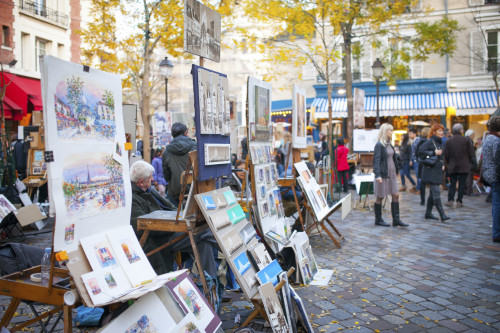Some people think I succeed at creativity because I talk about it and write about it all the time. If I’m being honest, I’ll tell you that creativity is as much a struggle for me as it is for most anyone else. In fact, sometimes I feel like I’m not at all creative. It’s not easy to come up with a creative way to preach the Gospel every week, let alone write blog posts three times a week with at least some kind of creative bent. I certainly don’t think I’m anywhere near the most creative person in the world, let alone in my own family.

However, my interest in the subject has helped me put things into place that will bring more success to my creative pursuits. They’re not foolproof unless I actually put them into practice. Succeeding at creativity is more a choice than it is a gift. You have to work at it. You have to put time and effort into it. You have to have the desire to be more creative and bring more creativity to your job, your work, your art, and even your play.
I’ve discovered that you’ll never succeed at creativity if:
- You don’t read books about creativity. You won’t succeed at creativity if you’re not reading Orbiting the Giant Hairball: A Corporate Fool’s Guide to Surviving with Grace or The Creative Habit: Learn It and Use It for Life
or
Steal Like an Artist: 10 Things Nobody Told You About Being Creative
or The War of Art: Break Through the Blocks and Win Your Inner Creative Battles
, or other books like these. Reading most anything is sure to light your creative spark. If you don’t want to succeed at creativity don’t read these books. Reading fuels too much creativity, so if you want to avoid creativity, don’t read.
- You don’t set aside time for creation. You won’t succeed at creativity unless you schedule it into your calendar. That’s right: make an appointment with yourself to think, to doodle, to study, to read, or to write. Your creative time will pay off with benefits that will surprise you. When I actually do this prior to the time I set to write a sermon, I find myself connecting far more creative dots than I do when I fail to schedule some creative time. If you don’t want to succeed at creativity, never schedule any time for it.
- You don’t take walks, run, or ride your bike. You won’t succeed at creativity if you don’t move. One of my favorite times of the day is when I get to ride my bike. I try to do so most days of the week. I do it in the morning to get my creative juices flowing right at the start of the day. When I ride, I don’t listen to music or podcasts (first of all, it’s too dangerous!). I let my mind wander. I think about how I can ride faster. I try to make up stories about the people I pass as I ride. I ponder the things I’ve been reading or studying. The neurons in my brain are firing faster and in far different ways than they do when I’m just sitting at a desk or in front of a TV. If you don’t want to succeed at creativity, never use physical activities to get away from your daily grind.
- You don’t welcome others into your creative pursuits. You won’t succeed at creativity if you don’t learn from others. The times when my sermons have been the most creative were the times I had a creative team to help walk through texts, come up with main ideas, and put those ideas into the concrete form of some kind of visual or object. When I had all of that in front of me, my sermons simply flowed onto the page. Letting others into your creativity help sometimes distant ideas become connected in new and interesting ways. If you don’t want to succeed at creativity, never let others brainstorm with you.
- You don’t tell stories. You won’t succeed at creativity if you don’t listen to people’s stories, find them interesting, and learn from them. People love stories. They love the conflict, the climax, the denouement, the conclusion. They love following along. Just take a look at the success of all the new shows and series’ on Netflix. People love a good story. Use stories in your writing, in your art, even in your business. They will draw people in. People will see you as more creative when you tell good stories. Keep your eyes open for them. They are all around you in your everyday life. If you don’t want to succeed at creativity, never pay attention to, or use, stories.
What are some other reasons that people will never succeed at creativity?






 Nativity, by He Qi. Used by permission. Go to
Nativity, by He Qi. Used by permission. Go to 

